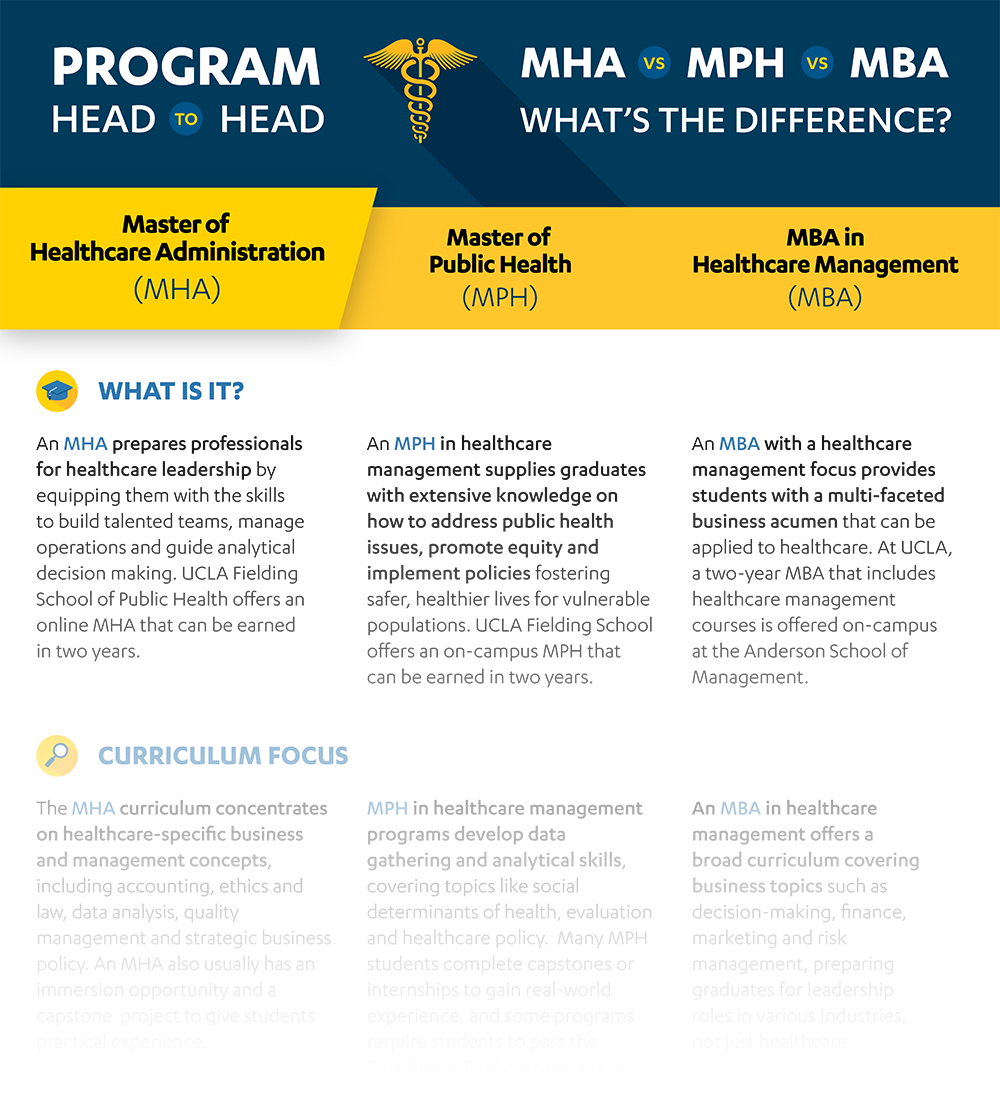How Data Analytics Can Inform Compassionate Healthcare Leadership
Comments Off on How Data Analytics Can Inform Compassionate Healthcare LeadershipHealthcare professionals can work in high-stress environments with a lot of responsibility. From managing emergency rooms to complying with new regulations, trying to respond to various pressures can sometimes come at the cost of patient well-being. Too often patients leave healthcare settings feeling dehumanized, like an item on a to-do list rather than a person treated with compassion.

Given this reality, it is important for healthcare administrators to learn how to meet the demands of their profession while ensuring their organizations prioritize compassionate care. One potential way to balance these two priorities is to implement data analytics solutions. Data analysis can reveal trends in patient outcomes, helping providers identify which interventions are most effective and which may need adjustment. What’s more, by analyzing data, healthcare organizations can allocate resources more efficiently, ensuring that patients receive timely and appropriate care.
In UCLA’s online Master of Healthcare Administration (MHA) program, students learn how proper use of data analytics puts patients at the forefront of their organizations.
Technical Skills for Healthcare Administrators
No matter what program they choose, MHA students will learn a variety of technical skills that can and should serve as a foundation to help them better understand and serve their patients. These skills may include:- Statistical methods, including descriptive and inferential statistics, allow healthcare workers to analyze data, research outcomes and implement quality improvement initiatives.
- Quality improvement techniques support healthcare administrators in identifying inefficiencies and implementing quality improvement initiatives in their organizations. Six Sigma, Lean and other methodologies popular in business offer great frameworks to follow.
- Economic principles and financial management are unique in healthcare, and typical areas like cost analysis, budgeting and reimbursement models may have unique challenges.
Will I Learn Data Analysis in an MHA Program?
A Master of Healthcare Administration (MHA) program can help individuals develop effective data analytics skills through a variety of course offerings, hands-on experiences and practical applications.
Most programs offer specific courses focused on health informatics, data analytics and statistics, providing foundational knowledge and technical skills necessary for data analysis in healthcare settings. These courses often include hands-on projects where students analyze healthcare data sets, allowing them to apply analytical techniques to practical scenarios. Reviewing these cases helps students understand how data analytics informs decision-making, quality improvement, and strategic planning in healthcare organizations.
MHA students may also learn to use industry-standard data analysis software like Excel, R, SAS or Tableau, gaining proficiency in tools that are widely used in healthcare.
In a program that offers engagement or immersion opportunities, MHA students will enrich their understanding by learning alongside professionals from diverse backgrounds (such as IT, nursing and public health), allowing them to see how data analytics intersects with various healthcare domains.
Interpersonal Skills for Healthcare Administrators
Healthcare is multifaceted, integrating medical, psychological, social and technological elements, and leaders must navigate complex systems and problems while ensuring high-quality patient care. Too much focus on the technical aspects of the industry can cause administrators and providers to forget the interpersonal skills that make patients feel seen and cared for, such as communication, active listening, empathy and patience. Making sure that patients feel seen and respected leads to improved satisfaction and has a demonstrated effect on patient outcomes.
Compassionate care is a holistic approach to healthcare that prioritizes empathy, understanding and emotional support for patients. It goes beyond just treating physical ailments; it involves recognizing and addressing the emotional, psychological and social needs of individuals.
The Importance of Compassionate Care
When patients feel respected by providers and administrators, they are more likely to adhere to treatment plans, attend follow-up appointments and maintain healthy lifestyles. Additionally, satisfied patients are more likely to recommend healthcare providers to others and return for future care. High patient satisfaction scores can also enhance an organization’s reputation, instill a sense of trustworthiness and attract new patients.
Prioritizing compassion leads to a better work environment for healthcare staff as well. Happy patients contribute to a positive atmosphere, which can improve job satisfaction and reduce burnout among healthcare workers.
How Can Data Analytics Support Compassionate Care?
By analyzing patient data, healthcare providers can gain a deeper understanding of individual needs, preferences and histories, allowing for more personalized care plans that consider emotional and psychological factors. Some ways that healthcare organizations can use data analytics to improve patient outcomes and support compassionate care include:
- Identify at-risk patients: Predictive models can identify patients who are at risk for certain conditions or adverse outcomes, enabling early interventions and tailored support that can address medical needs alongside emotional and social support.
- Improve access to care: By analyzing trends and needs within a patient population, healthcare organizations can allocate resources more effectively, ensuring that support services — such as counseling or social work — are available to those who need them most.
- Support mental health interventions: Regularly analyzing data related to mental health outcomes can help healthcare providers recognize worrisome patterns, leading to timely interventions and improved support for patients facing emotional challenges.
Data analytics can also support organizational needs, such as identifying gaps in staff training related to compassionate care. With access to data, healthcare administrators can organize targeted continuing education initiatives that enhance empathetic communication and patient interaction skills among their service providers.
By using data analytics to inform compassionate care practices, healthcare providers can foster a more empathetic, responsive and personalized approach to patient care, ultimately improving outcomes and patient satisfaction.
Learning Data Analytics and Leadership Skills in an MHA
In summary, a Master of Healthcare Administration (MHA) program integrates hands-on experiences and practical applications to teach skills in health informatics, data analytics and effective leadership. This provides the foundational knowledge and technical skills necessary to deliver compassionate care.
UCLA Fielding School of Public Health’s online Master of Healthcare Administration curriculum teaches students to improve patient outcomes and solidify their leadership abilities through an array of courses, including:
- Data Analytics & Visualization: Students elevate analytical skills and learn to leverage data to drive strong leadership decisions within management functions, healthcare organizations and the healthcare industry at large.
- Leadership & Ethics: Students examine leadership in healthcare and identify characteristics of successful leaders and opportunities to further develop their own leadership abilities.
- Quality Improvement & Performance Excellence: Students explore quality improvement (QI) techniques and how to improve effectiveness through management and operations.
- Capstone Project: Students design and conduct a project based on a health administration problem addressing the delivery, financing and evaluation of healthcare administration services.
In addition, committed and dedicated healthcare professors center patient outcomes and experience in their teaching. For example, UCLA MHA Professor Kelly Watson served as a healthcare leader for over a decade, and her participation in leadership teams has contributed to the forward movement of several organizations by implementing strategic initiatives that have led to higher quality outcomes and enhanced access to care.
“Interacting with my peers, faculty and alumni from the program thus far has really opened my eyes to the culture of openness and the nurturing behavior of the faculty. They really want you to grow, and they are willing to go out of their way to connect you with someone who is able to get you to where you want to be in the future.”
Jamie Pham
UCLA online Master of Healthcare Administration alumni
By integrating these components, an MHA program equips students with the data analytics skills necessary to make informed decisions, drive improvements and lead effectively in the healthcare environment. At UCLA, this data-driven leadership also prioritizes patient outcomes, creating compassionate future healthcare leaders who will guide decisions with both data and empathy.
About the Online Master of Healthcare Administration at the UCLA Fielding School of Public Health
The online Master of Healthcare Administration (MHA) from the UCLA Fielding School of Public Health can prepare you for leadership roles in healthcare organizations. The MHA curriculum builds multidisciplinary skills in areas such as analytics, budgeting and effective communication. This program explores the concepts and strategies that managers and executives apply to achieve improved health outcomes and more efficient operations.
Courses in the MHA are taught by groundbreaking researchers and experienced professionals in both healthcare and management. Faculty members at the UCLA Fielding School participate in global efforts to improve the well-being of communities and lead research centers dedicated to pioneering work in public health. UCLA ranks No. 1 among public universities according to U.S. News & World Report.
Request Brochure
Fill out the fields to download a program brochure and request more information about the online Master of Healthcare Administration from the UCLA Fielding School of Public Health. You can also contact a enrollment specialist with your questions by calling (424) 443-7385.







